9 Simple Strategies to Stop Worrying
Anxious, stressed, overwhelmed? Check out these scientifically backed ways to boost mood and worry less.
Updated on October 10, 2022
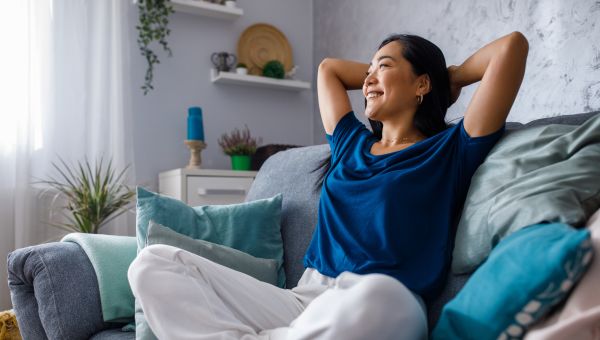
Anxious, stressed, overwhelmed—maybe all three? Too much worry is an emotional load that wreaks havoc on your happiness and physical health. Check out these scientifically backed ways to combat stress and worry less.

Step Away From Social Media
Sure, scrolling through your social media feeds can help you feel connected to the greater world. But research suggests that obsessive or excessive use may lead to stress, anxiety, or even depression.
In part, that distress may be caused by constant comparison. When all you see are happy family photos, glamorous selfies, and beautiful vacation pictures, you might begin to feel inadequate, or fear that you’re missing out. The effect is well-documented among adolescents and young adults, though it can affect anyone at any age.
Fortunately, taking time away from social media can help you worry less in general—once you get used to being less tethered to your devices. Start small, by cutting down before bedtime. Turn your phone off 30 to 60 minutes before you turn in, and then stow it in a separate room. Switch to a more relaxing way to end the day, like listening to music or practicing mindful meditation. (More on those later.)
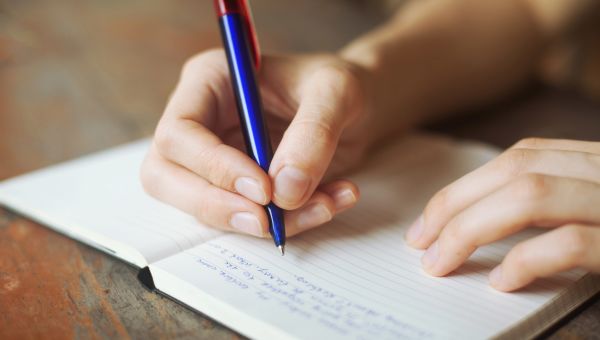
Write Down Your Worries
You don’t have to be Shakespeare for your words to matter. Journaling can help you express yourself, identify issues to work on, and devise ways to address your troubles, helping to alleviate stress and manage your mental health. Even a quick writing session can calm your nerves and boost your well-being.
Unsure of what to write about? The American Psychological Association suggests that writing down positive or grateful feelings may help free you from a negative mindset.
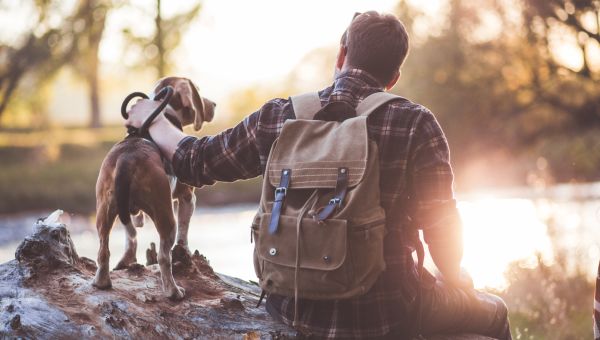
Be Mindful
Mindfulness is a state of awareness of moment-to-moment experiences, and it can be as simple as appreciating the warmth of the sun on your skin on a spring day. When you’re mindful, you experience life as you live it. This awareness may help lower stress, control overthinking, and improve focus.
Some research suggests that practicing mindfulness consistently—especially when used in conjunction with other stress-relieving techniques—may help ease anxiety and depression. For example, a randomized controlled trial published in the Journal of Medical Internet Research in 2020 found that an 8-week web-based mindfulness virtual community reduced symptoms of both mental health conditions in undergraduate students.
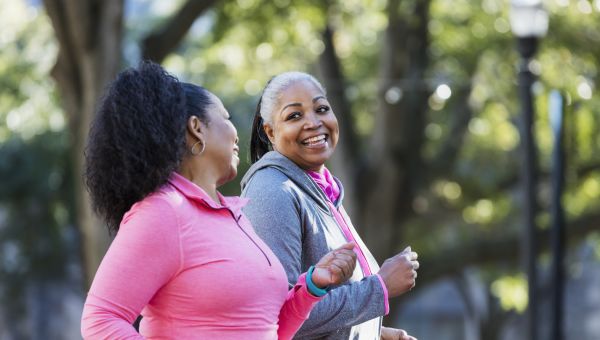
Fit in Some Fitness
Aside from the physical health benefits, working out can ease mental stress both in the moment and over the long term. That’s partly because exercise promotes the release endorphins, “feel-good” brain chemicals that can help relieve pain and improve your mood. What’s more, multiple studies have found that both cardio and strength training can work to reduce stress symptoms—often significantly—in people with anxiety disorders.
For an extra mood booster, take your workout outside. Research suggests that spending just 5 to 10 minutes doing light outdoors activity—think gardening or walking—is all it takes to sap your stress.
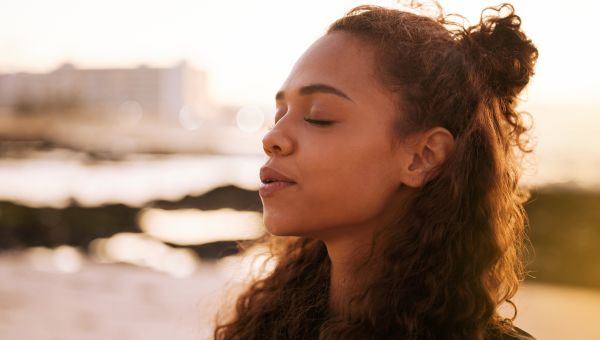
Meditate
Research shows that meditation activates the ventromedial prefrontal cortex and the anterior cingulate cortex—two areas that keep worrying and anxiety in check. How does it happen exactly? Each deep breath you take generates brainwaves that let you relax and mentally move away from things that are bothering you.
New to meditation? Many people start with online meditation videos or meditation apps. If you need a hand finding your breath or developing a routine, visit Sharecare’s DrJud.com website for more resources. For an immersive, evidence-based mindfulness experience, download the Unwinding Anxiety mental well-being app. You can also ask your healthcare provider to recommend a practice that might work for you, such as lovingkindness.
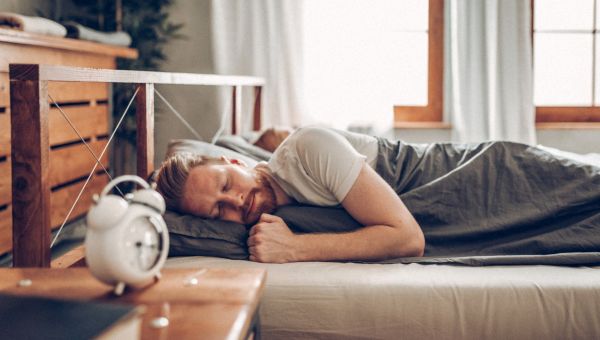
Get to Bed Earlier
Aside from feeling groggy and cranky from too few ZZZs, a sleepless night can also make you more vulnerable to anxiety. In fact, just one bad night of sleep can significantly worsen feelings of anxiety, depression, and anger. The effect feeds upon itself, too—excess distress can then contribute to poor sleep.
Anyone’s sleep can benefit from practicing good sleep hygiene, which helps you feel fully rested and less worried. Start by hitting the sack earlier than usual. Doing so gradually may make it easier. Keep your bedtime routine, even on weekends. Remove all distractions, avoid stimulants before bed (chocolate counts), and ensure your room is dark, cool, and quiet.
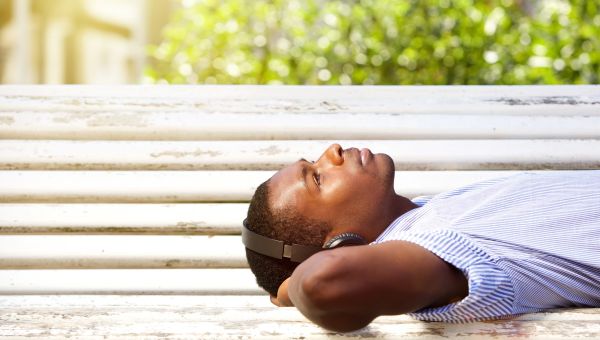
Turn on the Tunes
If you feel frazzled, listening to some music can help release stress. It can also boost your mood and may even help alleviate physical pain. Upbeat tunes are linked to more optimism, while a slower tempo can quiet your mind and help relax you, according to the National Center for Complementary and Integrative Health. Calming music may especially be helpful before bedtime.

Laugh out Loud
A good belly laugh can relax your blood vessels, increase endorphin production, and even lower cortisol, a stress hormone that suppresses the immune system. All of this helps tame tension and reduce stress. So, next time you feel overwhelmed, turn on a funny movie or head to the internet for a quick, funny video. Even better: Get together with a good group of friends you’re sure to laugh with.
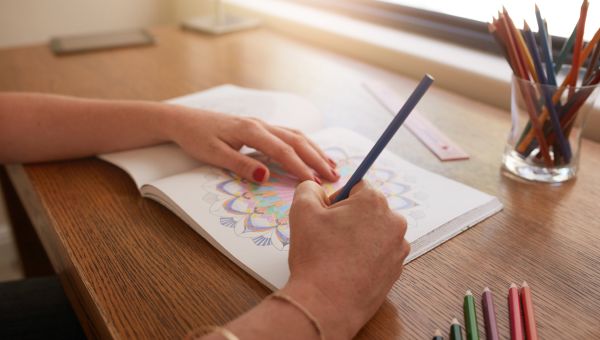
Crack Open a Coloring Book
Coloring books aren’t just for kids anymore: Research shows that adults can get some therapeutic value from them, too, even those who experience anxiety so severe, it sends them to the emergency department (ED). A small 2020 study published in Academic Emergency Medicine found that ED patients who colored reported lower levels of anxiety two hours later compared to a placebo group.
“Coloring can be a pathway to experiencing flow, which is the merging of action and awareness in a focused way that leaves no room for worries and concerns outside of the immediate activity,” says psychotherapist Julie de Azevedo Hanks, PhD.
Not interested in coloring? Dr. Hanks explains that any repetitive, creative activity—like knitting, for example—can help calm the body and lower stress.

Shannon H, Bush K, et al. Problematic Social Media Use in Adolescents and Young Adults: Systematic Review and Meta-analysis. JMIR Ment Health. 2022 Apr 14;9(4):e33450.
Marino C, Gini G, et al. The associations between problematic Facebook use, psychological distress and well-being among adolescents and young adults: A systematic review and meta-analysis. J Affect Disord. 2018 Jan 15;226:274-281.
University of Rochester Medical Center. Journaling for Mental Health. Accessed August 19, 2022.
American Psychological Association. How to help children and teens manage their stress. Last updated: July 6, 2022.
Smyth JM, Johnson JA, et al. Online Positive Affect Journaling in the Improvement of Mental Distress and Well-Being in General Medical Patients With Elevated Anxiety Symptoms: A Preliminary Randomized Controlled Trial. JMIR Ment Health 2018;5(4):e11290.
University of Minnesota. What Is Mindfulness? Accessed August 19, 2022.
National Center for Complementary and Integrative Health. Meditation and Mindfulness: What You Need To Know. Last updated June 2022.
El Morr C, Ritvo P, et al. Effectiveness of an 8-Week Web-Based Mindfulness Virtual Community Intervention for University Students on Symptoms of Stress, Anxiety, and Depression: Randomized Controlled Trial. JMIR Ment Health. 2020 Jul 17;7(7).
Mayo Clinic. Depression and anxiety: Exercise eases symptoms. September 27, 2017.
Mental Health America. What are Endorphins? Accessed August 19, 2022.
Stubbs B, Vancampfort D, et al. An examination of the anxiolytic effects of exercise for people with anxiety and stress-related disorders: A meta-analysis. Psychiatry Res. 2017 Mar;249:102-108.
Henriksson M, Wall A, et al. Effects of exercise on symptoms of anxiety in primary care patients: A randomized controlled trial. Journal of Affective Disorders. Volume 297, 15 January 2022, Pages 26-34.
Gordon BR, McDowell CP, et al. Resistance exercise training for anxiety and worry symptoms among young adults: a randomized controlled trial. Scientific Reports. October 16, 2020; 10, Article number: 17548 (2020).
Meredith GR, Rakow DA, et al. Minimum Time Dose in Nature to Positively Impact the Mental Health of College-Aged Students, and How to Measure It: A Scoping Review. Frontiers in Psychology. 14 January 2020.
Mayo Clinic. Meditation: A simple, fast way to reduce stress. April 29, 2022.
Kirlik N, Cohen ZP, et al. Self-regulation of the posterior cingulate cortex with real-time fMRI neurofeedback augmented mindfulness training in healthy adolescents: A nonrandomized feasibility study. Cognitive, Affective, & Behavioral Neuroscience. Volume 22, pages849–867 (2022)
The Anxiety and Depression Association of America. Sleep disorders. Updated October 19, 2
Sleep Foundation. How to Reset Your Sleep Routine. Updated August 11, 2022.
National Center for Complementary and Integrative Health. Music and Health. April 2022.
Jespersen KV, Koenig J, et al. Music for insomnia in adults. Cochrane Database Syst Rev. 2015 Aug 13;2015(8):CD010459.
Mayo Clinic. Stress relief from laughter? It's no joke. July 29, 2021.
Northwestern Medicine. Healing Through Humor. Accessed August 19, 2022.
Cleveland Clinic. 3 Reasons Adult Coloring Can Actually Relax Your Brain. May 27, 2020.
Koo M, Chen HP, Yeh YC. Coloring Activities for Anxiety Reduction and Mood Improvement in Taiwanese Community-Dwelling Older Adults: A Randomized Controlled Study. Evid Based Complement Alternat Med. 2020 Jan 21;2020:6964737.
Rajendran N, Mitra TP, Shahrestani S, Coggins A. Randomized Controlled Trial of Adult Therapeutic Coloring for the Management of Significant Anxiety in the Emergency Department. Acad Emerg Med. 2020 Feb;27(2):92-99.
More On


video

article
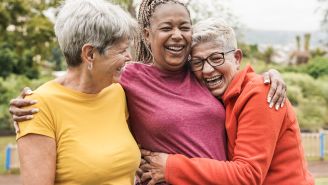
slideshow


video


video
